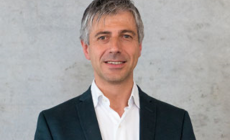NATO – Russia Summit: key elements
 From 8-9 July 2016, the annual NATO Summit was held in Warsaw, Poland. During this two day conference NATO members and its partners discussed international security, cyber defense, the continued war in Afghanistan, the migrant crisis in Europe, and the Ukraine conflict. During the summit, Russia also received a lot of attention: it was stated that Russia also needed to deliver on the Minsk Agreements, and that sanctions would remain in place until significant improvement was made in Donbas. As a result, Russia perceived this as an attack by the West, believing that the West was purposefully attempting to demonize it. Nonetheless, despite these accusations, NATO and Russia figures stated that they would discuss these developments in further detail.
From 8-9 July 2016, the annual NATO Summit was held in Warsaw, Poland. During this two day conference NATO members and its partners discussed international security, cyber defense, the continued war in Afghanistan, the migrant crisis in Europe, and the Ukraine conflict. During the summit, Russia also received a lot of attention: it was stated that Russia also needed to deliver on the Minsk Agreements, and that sanctions would remain in place until significant improvement was made in Donbas. As a result, Russia perceived this as an attack by the West, believing that the West was purposefully attempting to demonize it. Nonetheless, despite these accusations, NATO and Russia figures stated that they would discuss these developments in further detail.
On 13 July 2016 NATO and Russian delegates met with one another to further discuss the events that occurred at the NATO Summit. During the meeting, Russia demanded that NATO explain its recent moves against Russia. For example, NATO announced that four new multinational battalions, where the additional troops would be placed in Estonia, Latvia, Lithuania, and Poland. As a result, Russia interpreted this as NATO aggression, as “NATO [and its] allies are creeping ever closer to its Kaliningrad exclave.” In addition, many Russian media outlets wrote negative reports on the NATO Summit. For example, Russia’s Rossiyskaya Gazeta stated that the summit had “an openly anti-Russian agenda.” Another newspaper outlet, Nezavisimaya Gazeta, argued that the summit “reflect[ed NATO’s] plans for further confrontation with Russia and eastward expansion.” As a result of this aggressive policy, “Russia is working through scenarios where it will have to respond to such events with nuclear strikes on state and military administration centres of all NATO member states.”
But there are two sides to this. While Russia may continue this line of thinking, where it perceives itself as the victim, according to Former U.S. Secretary of State Madeleine Albright, the way in which NATO and Russia interact with one another also “depend[s] a lot on Russian behavior.” In other words, former Secretary of State Albright argues that it is NATO, rather than Russia, that is reacting to an aggressive policy promoted by its partner. Moreover, the former Secretary of State found it odd that Russia would behave in this aggressive manner, given that it is currently facing economic problems.
Unfortunately, while these developments between NATO and Russia continue to evolve, some NATO leaders are fearful that a “crisis-creating accident is a real possibility,” which would then result to a new Cold War. Therefore, in order to ensure that the relationship does not turn sour, NATO leaders believe that they must continue open dialogue with Russia. Hence NATO allies will do everything in their power to ensure that they are transparent as possible.
Implications for NATO
Given the recent summit in Warsaw, and the subsequent meeting that it had with delegates from Russia, NATO has “clarified that [it] is ready to pay the cost of enhancing the security of its eastern flank in the face of growing aggression from Moscow.” As a result, the alliance paid particular focus on its allies in Eastern Europe and the developments in Ukraine. In addition, “NATO emerged from Warsaw more unified than some had predicted it would.” Thus the summits show that the various NATO member states are willing to cooperate with one another during these times of trouble.
The important note from these two summits, however, is how NATO will develop as an organization. For example, ‘Brexit’ may play a factor in how NATO will define itself in the future. In addition, it appears that Eastern Europe will have to play a larger in the organization, given the recent identity crisis in the West. Currently it is not determined how this will play out. For example, if the East were to take a more “hands-on role,” it is likely that this would further aggravate Russia, which would lead to further consequences. In addition, NATO’s Article 5 states that an attack on one member state is an attack on all. Furthermore, it is not guaranteed that, despite the existence of the article, the member states would willingly go to war to defend one of its smaller member states. And “with strained economies, rising populism, and persistent threats from the East and the South, NATO still faces an uphill battle.” Therefore, though time will determine the true effects of the NATO Summit and the meeting with Russia, it appears that the short term gains are positive.
Implications for Russia
According to Russian news, the recent summit gave Russia little reassurance that the two parties would cooperate more with one another. Rather, they reported that the purpose of the meetings were to “keep Russia in check.” For example, according to Russian Foreign Minister Sergey Lavrov, the comments heard at the NATO Summit “did not make [Russia] happy.” Furthermore, Lavrov argued that by constantly portraying this idea that Russia is Europe’s enemy, this leads to a divided Europe.
In addition, given the recent importance of Ukraine, as well as NATO members in Eastern Europe, Russia believes that it is purposefully being targeted by its Slavic neighbors. This idea is supported by statements such as “it is the Polish rhetoric that in many ways dominates the European discussion of Russia … [and] Polish politicians as well as some politicians from the Baltic States … try to spread this idea among other NATO members” that Russia is an aggressor. Hence, given these interpretations that the Russian Federation has provided, it is believed that Russia will continue to treat itself as the victim of the relationship, where it is NATO that is acting as the aggressor.
In addition, Russia has continuously hounded the idea that radical Islam should be the West’s top priority, and thus the two organizations should work with one another. After all, both Russia and the West have been subject to terrorist attacks. As a result, Russia argues that they should use their strength in order to defeat radical Islam together. In other words, according to Russia, the West should no longer act reluctantly towards the Crimea question and Russia’s continuous effort to uphold the Minsk Agreements, as this is leading to the decline of Russia-Western relations. Therefore, in Russia’s opinion, the NATO Summit was once again a gathering that “only reflected memorized clichés and traditional approaches without a vision for the future.” Given these statements, it is believed that Russia will continue to behavior in this aggressive manner, where it will then claim that the West is portraying its actions as an act of evil.
Implications for Eastern Europe
Eastern Europe has gained a lot from the recent NATO Summit. First, four multinational battalions will be deployed to NATO members in the east. As a result, NATO will be strengthening its presence in Eastern Europe, something that its Eastern European members have wanted for several years. Second, given the ‘Brexit’ decision and the current EU identity crisis, it appears that Eastern Europe will now be more heavily involved in both organizations, thus making the geographical region and the countries which reside there more prominent on both accounts. As a result, while the EU is now fragmented following the ‘Brexit’ decision, it appears that NATO is determined to remain unified. This is a promising sign for its future.
But the countries located in Eastern Europe also have their doubts. As has often been the case, countries in Eastern Europe (both NATO members and non-NATO members alike) believe that more can be done in the efforts of countering Russian aggression. In addition, these nations often fear the possibility that Russia may provoke similar aggression in their countries, as was the case in Donbas in Eastern Ukraine. Therefore, given what the Russian newspapers have stated, and how Russia perceived itself following the NATO Summit with NATO and with its own meeting with representatives from the organization, it is believed that the countries in Eastern Europe will take more aggressive steps in order to ensure that their sovereignty remains intact.
Implications for Ukraine
Given the recent summit with Russia, “[p]olicy toward non-NATO partners in Eastern Europe … remains a thorny problem.” This is because this could be seen as a means of further aggravating Russia. For example, following the collapse of the Soviet Union, Russia, its largest successor state, was displeased that former states Estonia, Latvia, and Lithonia became members of NATO. Should Ukraine join the club of former Soviet states to join the military organization, it is likely that the conflict in Eastern Ukraine would escalate.
In addition, and understandably so, NATO is not willing to risk such developments either. This is partially because it is still trying to define itself in the post-Soviet world. Does it focus its attention on Russia aggression, cyberterrorism, or the spread of radical Islam, which has led to conflicts in the Middle East and Northern Africa? Or can the organization focus on all three of these issues? Given recent developments, the resources of NATO members are spread thin, and as a result it will have to select one of these issues as its primary concern. Unfortunately for Ukraine, it is likely that Russian aggression is not the priority on this list.
Conclusions
Overall, following the NATO-Russia meeting, it seems as if very little additional material was discussed. On the hand Russia continues to perceive itself as the victim in Western expansionism, and despite its best efforts in trying to resolve the crisis in Ukraine, and assisting the West in the Middle East, Russia is being demonized by its allies. On the other hand, NATO is continuing to counter Russian aggression, calling Russia on its bluffs on how it is not reinforcing the Minsk Agreements and that Russia has to better participate in the international arena. Given these two separate mindsets, it is doubtful that much progress or many changes will occur from this meeting.
Therefore, the West must continue to develop ways in which it can successfully work with Russia as a global partner, yet by the same token ensuring that its aggressive actions near its neighbors end. Overall, this is a rather complicated matter, and it is projected that not much will change throughout the coming year.
Джихадизм у Казахстані як частина глобальної терористичної мережі

Gordon M. Hahn, Старший науковий дослідник з питань Росії та Євразії Центру міжнародних та стратегічних досліджень, м Вашингтон
Gordon M. Hahn, Старший науковий дослідник з питань Росії та Євразії Центру міжнародних та стратегічних досліджень, м Вашингтон Гордон Ган представив аналітичну доповідь на тему: ДЖИХАДИЗМ В КАЗАХСТАНЕ, КАК ЧАСТЬ ГЛОБАЛЬНОЙ ТЕРРОРИСТИЧЕСКОЙ СЕТИ
Румунія проти додаткових передумов для підписання Угоди про асоціацію між Україною та ЄС

Адріан Северин (Adrian Severin), депутат Європейського парламенту, незалежний (Румунія)
Адріан Северин, депутат Європейського парламенту, незалежний (Румунія), про підписання Угоди про асоціацію між Україною та Євросоюзом:
Експерт про ініціативу розпуску Конституційного суду

Франческо Палермо
Розвиток подій в Україні викликає стурбованість, бо погіршується. Варто зауважити, що сьогодні у багатьох країнах спостерігається помітна тенденція до загострення конфлікту між політичною та судовою гілками влади, за якого перша бере контроль над другою.
